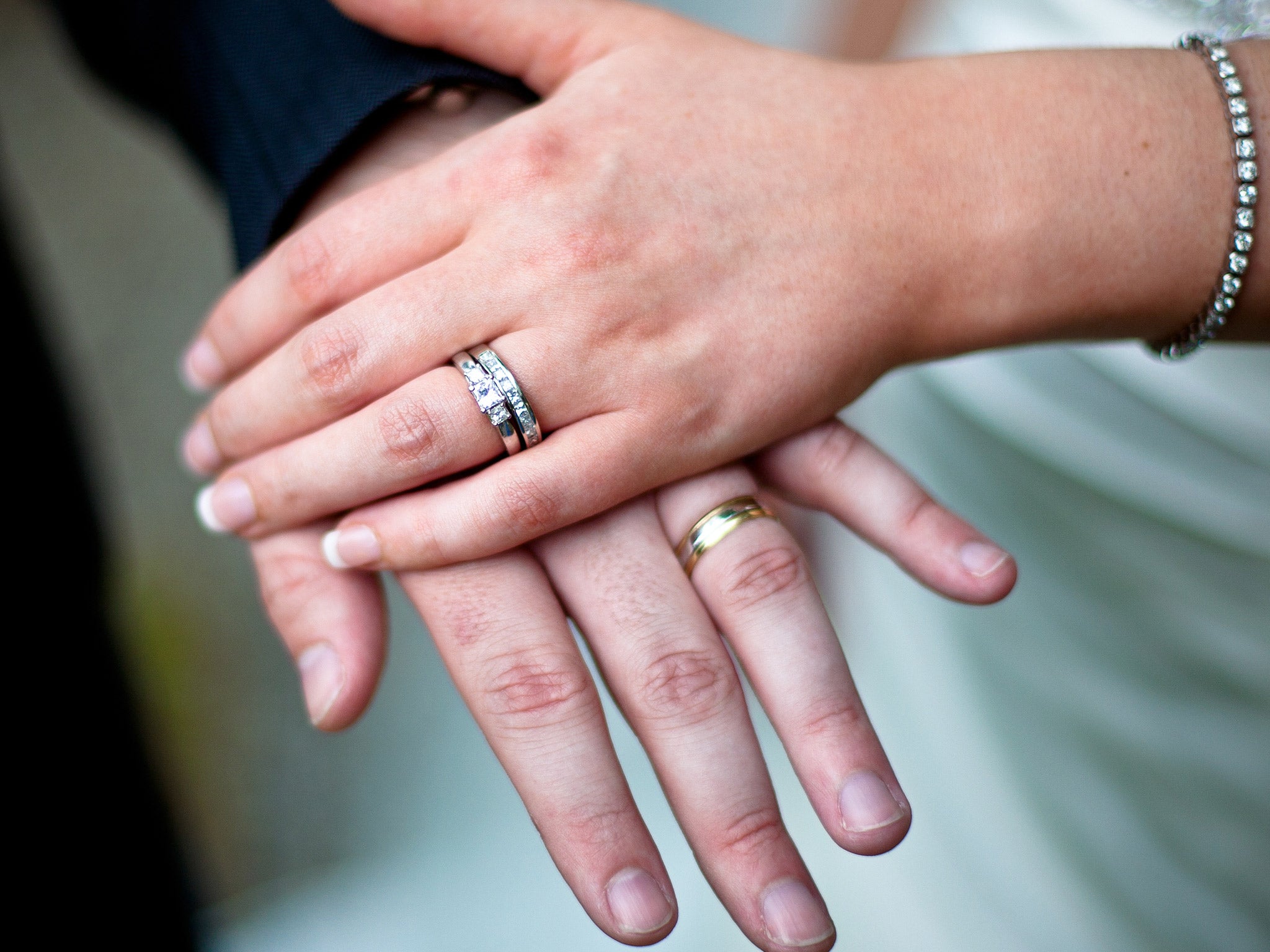Couples who are married or in civil partnerships more likely to be happy, study says
Higher proportion of married couples report 'very high rating' of life satisfaction compared with others in relationships and single people

Your support helps us to tell the story
From reproductive rights to climate change to Big Tech, The Independent is on the ground when the story is developing. Whether it's investigating the financials of Elon Musk's pro-Trump PAC or producing our latest documentary, 'The A Word', which shines a light on the American women fighting for reproductive rights, we know how important it is to parse out the facts from the messaging.
At such a critical moment in US history, we need reporters on the ground. Your donation allows us to keep sending journalists to speak to both sides of the story.
The Independent is trusted by Americans across the entire political spectrum. And unlike many other quality news outlets, we choose not to lock Americans out of our reporting and analysis with paywalls. We believe quality journalism should be available to everyone, paid for by those who can afford it.
Your support makes all the difference.Couples who are married or have entered into a civil partnership are more likely to be happy, new figures show.
A higher proportion of married couples report a “very high rating” of life satisfaction compared with others in relationships and single people, according to the Office for National Statistics (ONS).
The figures, which cover the period between 2011 and 2014, found 34.7 per cent of people who are married or in a civil partnership rate their life satisfaction as either a nine or a 10 out of 10, compared with 28.9 per cent of those who are widowed or live with their partner.
Perhaps unsurprisingly only 19.5 per cent of people who were separated or divorced rated their life satisfaction as “very high”, while 21.9 per cent of single people described themselves as very satisfied.
Overall, the ONS found that “national well-being has improved” across 17 areas where data is collected, including rates of unemployment and crime, as well as healthy life expectancy and household income.
But satisfaction has fallen or remained the same across 19 other areas, including health and leisure time, suggesting that Britain is still working through the effects of the 2008-09 recession. There will also be disappointment that adult participation in sport has fallen despite the London 2012 Olympics falling within the survey period.
“In many parts of our society life in the UK is improving, but we don’t necessarily feel that they are,” said ONS director of well-being Glenn Everett.
The proportion of people finding it difficult to cope financially fell from 11.6 per cent to 9.1 per cent between 2011 and 2014. Meanwhile, net national disposable income per head rose from £22,487 in 2011 to £22,786 in 2014.
Health was among the top areas where people felt their well-being had declined since 2011, with satisfaction falling from 66.3 per cent in 2011 to 57.8 per cent in 2014.
Mental health charities also expressed alarm that the proportion of people who said they had experienced anxiety or depression had climbed to 19.7 per cent from 18.3 per cent at the time of the last survey.
A higher proportion of women (22.5 per cent) than men (16.8 per cent) indicated they had experienced depression or anxiety in 2014, the ONS found.
Last night Stephen Buckley, head of information at mental health charity Mind, said it was important to understand the factors behind the increase and suggested it may be because more people “are starting to feel comfortable talking about mental health”.
Anne Hagell, research lead at the Association for Young People’s Health, said the figures also confirmed anecdotal evidence that young women were increasingly suffering from anxiety and depression. She said: “Something is going on in the figures, and we think that may be something going on for young girls”.
The statistics also looked at green energy and sustainability, finding that Britain was less than halfway towards meeting the Government’s renewable energy target by 2020.
However, greenhouse gas emissions fell from 553.4 million tonnes of carbon dioxide equivalent, to 514.4 million tonnes equivalent.
Join our commenting forum
Join thought-provoking conversations, follow other Independent readers and see their replies
Comments